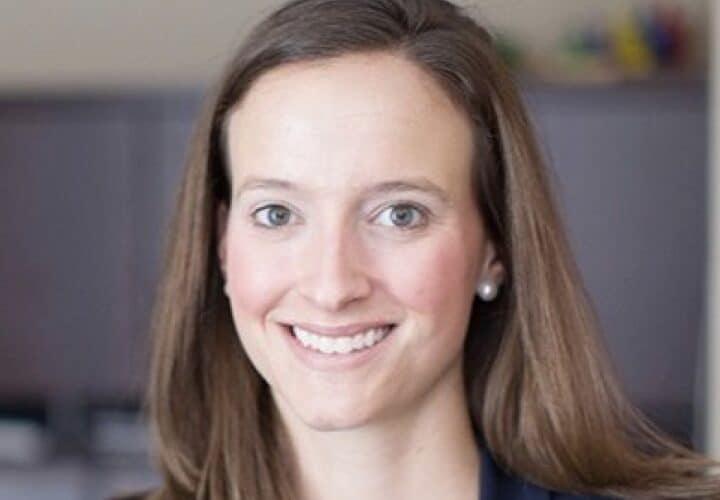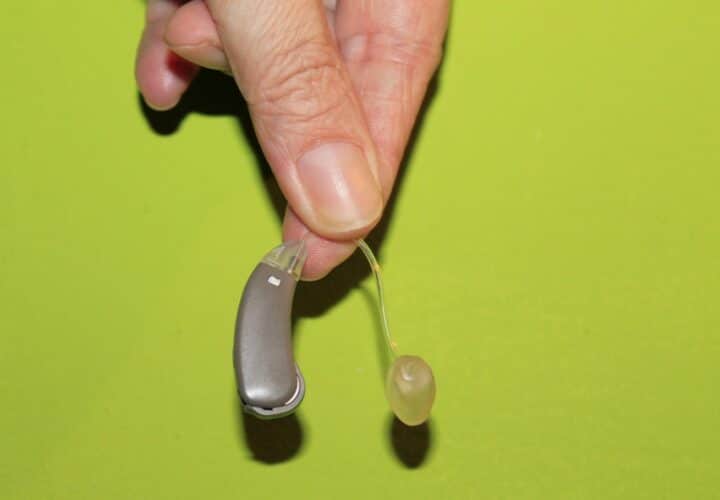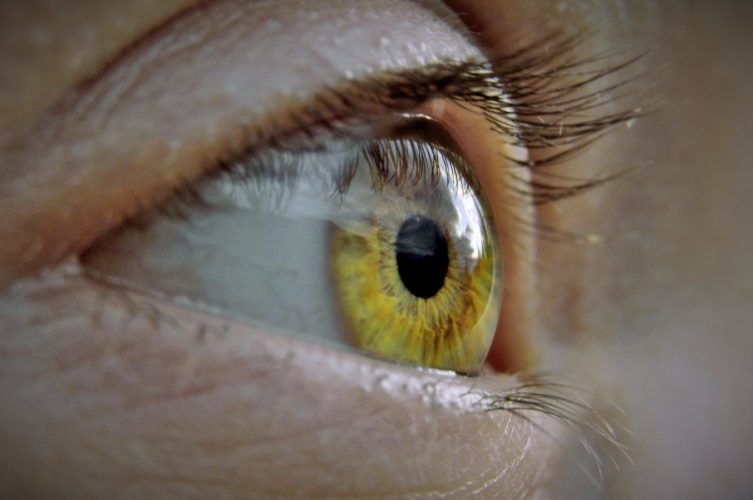Growing evidence shows that hearing loss is the leading controllable risk factor in midlife for dementia. Danielle Powell, an audiologist and epidemiologist at Johns Hopkins University, joined us for Being Patient's LiveTalk series to discuss the link between hearing loss and dementia risk, the red flags of hearing impairment in older adults and treatment options.
Roughly one in 10 people worldwide, or over 700 million people, will experience hearing loss by 2050, and research suggests it is the leading controllable risk factor in midlife for dementia, accounting for eight percent of dementia cases worldwide.
While researchers are trying to better understand the factors that influence this link, experts say it is critical for people to seek treatment for their hearing loss not only to potentially reduce their risk for developing dementia, but also to improve their quality of life.
Being Patient spoke with Danielle Powell, an audiologist and epidemiologist at Johns Hopkins University, about the link between hearing impairment, aging and dementia, why hearing loss may heighten dementia risk, the early signs of hearing loss in older adults and ways to address it.
Being Patient: Last year, the Lancet Commission on dementia prevention, intervention and care showed that among 12 modifiable risk factors of dementia, hearing loss may account for eight percent of dementia cases worldwide. Can you share with us some of the reasons that may explain the link?
Danielle Powell: That Lancet report was really important for us as researchers, clinical providers, anyone interested in trying to have an impact on dementia or cognitive decline in older adults. They identified that potentially up to 40 percent of dementia could be prevented by intervening on certain numbers of risk factors — hearing loss being one.
Hearing loss is really interesting because it has an extremely high prevalence in older adults. Two thirds of individuals over the age of 70 have hearing loss in the United States. Because of this high number of individuals that we could actually act on [with] treatment, it gives us a lot of potential opportunities for altering the trajectory of cognitive decline later on.
We don’t yet know for sure if hearing loss causes dementia or cognitive decline. We have growing evidence to suggest that there is an increased risk of cognitive decline or dementia for those with hearing loss, but we’re still gaining our evidence base to understand, does hearing loss cause dementia? And within, what we’re trying to still understand is, how could hearing loss potentially increase risk for dementia?
One thought is that it’s the same underlying mechanism or underlying cause that’s causing both hearing loss and dementia, whether that’s vascular disease [or] overall neurodegeneration seen with aging … Another theory is that we know with prolonged hearing loss especially, and [with] hearing loss that’s not treated or acted on with hearing aids for example, we do start to see changes in the structure of the brain. [With the] decrease of sensory activation from auditory input, we see changes to the volume of [the] brain, how the neural connections are made, and these changes to brain structure may add to existing changes that we see in the brain, for example with Alzheimer’s disease.
Being Patient: What’s another theory?
Danielle Powell: Another theory is that basically, for an older adult in particular with hearing loss, they may experience not only a decreased audibility — sometimes they’re missing the softer sounds in the environment — but one of the most common complaints [from] older adults with hearing loss is a decreased clarity of speech. Things start to sound muddled, especially in a noisy environment with a lot of background noise. It’s that decreased clarity of speech that takes a lot more cognitive resources for an older adult to process that sound.
Being Patient: Got it, so the brain has to compensate for hearing loss.
Danielle Powell: In theory then, if you’re able to restore that auditory input for somebody with an assistive listening device or hearing aid for example, that would decrease the cognitive strain for the individual and that may help with their overall cognitive processing. One of the key things that we’re looking at for any of our interventions for hearing loss is: What does this do? How does this relate to the experience of the individual?
Being Patient: On top of these theories, other factors underlying the link between hearing loss and dementia risk may include social isolation, depression or reduced physical activity, as you and your colleagues wrote in a recent article. Now, let’s discuss the common symptoms of hearing loss in older adults. Can you share with us some of these red flags?
Danielle Powell: The presentation can vary and there [are] differences by race, ethnicity and gender [in terms of] how common hearing loss is. But one of the most common complaints from older adults is difficulty hearing [in an environment with] background noise. We call it the cocktail party effect or the restaurant effect. They know somebody is talking, but speech is unclear or garbled. For example, [they] have a greater difficulty hearing voices and understanding speech on the television. They need to turn up the television louder than what others would prefer. In particular, if it’s speech on the television, British television is one that I would get complaints about most commonly. It’s not what you’re quite as used to hearing and so it takes a little bit more effort to process.
[Difficulty] hearing on the telephone [is another example, or] not being able to hear a loved one as easily if their back is [facing you] or if they’re talking to you from a different room — things that can either create a barrier to the visual cues of somebody or where there [are] increased sounds that can get in the way.
For an age-related hearing loss, what we most commonly see is that the higher sounds of speech in the environment, those high frequency consonants, the s’s, f’s, t’s, the parts of speech that give [words their] crispness and clarity, are the ones that individuals start to have difficulty with first. They know somebody is talking. They get the volume of speech, but it’s that clarity that they miss, and so they’ll miss pieces of information.
Want to learn more about clinical trials
for Alzheimer’s and dementia?
Check out the Lilly Trial Guide.
Being Patient: It’s common for people to delay seeking treatment for hearing loss. Why is that?
Danielle Powell: I think [there are] a lot of reasons for that, not just [with] treatment but even [with the] investigation of, ‘How is my hearing?’ One of which is, at least in our society, I think there’s still a lot of stigma related to hearing loss, that it’s a condition that affects older adults. Nobody likes necessarily to be called an older adult, although [an] older adult [with] hearing loss can mean somebody much younger than you would necessarily think. [Hearing loss] is not necessarily benign. It’s not necessarily just affecting your communication ability with loved ones or those around you, which in and of itself is really important. Your hearing and your ability to understand people is what connects you to the world around you, but we are starting to realize that hearing loss is affecting a lot of other health outcomes for older adults like cognition, falls, physical activity, frailty, depression, anxiety, things like that.
Yet, our society and we as clinical providers and public health professionals have a lot that we can do to help. We call this stigma [of] ‘I don’t want to recognize that I have hearing loss’ an invisible disability, in the sense [that] unless you’re actively advocating for yourself or your loved one is, many people don’t know that you have hearing loss, which can unfortunately be a negative consequence for those with dementia because behavioral changes associated with dementia may actually be difficulty hearing that’s at play.
In the past, our hearing devices were not the most attractive. They were large. The technology was very different than what it is today, and we continue to make advances. Or, you might remember your parents’ experience with a hearing aid and expect that your own experience will be the same, even though we have a lot better technology now [and] increased awareness of regulations on the quality of technology. Stigma I think is one key reason why there’s a lot of delay in people addressing their hearing loss.
Access to hearing care can actually be very challenging with how our healthcare system is set up. It currently requires a referral from a primary care provider to see a specialist. We don’t yet have direct access for hearing care services and that creates a lot of barriers and challenges with accessibility and equity of care for individuals across the country, depending on where you live. Something that we’re actively trying to work on is to make it easier for individuals to at least understand what their hearing [is] like and ‘what are my options for myself and for my loved ones that can help make this process easier?’
Being Patient: What steps should older adults take if they notice symptoms of hearing loss?
Danielle Powell: The first step, and this can often get forgotten at a geriatrician or a primary care appointment, is to bring it up with the primary care provider. Many older adults have a lot of health needs and hearing might get put on the back-burner because it’s not quite as pressing, but it can have a lot of effects on a lot of different other aspects of health. Even looking to get a baseline hearing assessment for an individual would be really helpful and at least [help you] understand what your options are.
Something to consider as a caregiver [is] your own hearing status, because your [ability] to hear clearly at medical appointments is important as a primary caregiver and as a primary communication partner for some older adults.
Being Patient: What are the treatment options for older adults with hearing loss?
Danielle Powell: Hearing aids are the thing that most people immediately think of. The Over-the-Counter Hearing Aid Act through Congress may start to go into effect later this year, which may improve access for a lot of individuals. With what is already available, a pocket talker is another example. This can be great for some individuals who don’t have a lot of challenging listening demands — maybe it’s mostly one-on-one communication but they do have a lot of difficulty hearing — that may serve to meet listening needs much better and they may find that communication is much easier.
For those with much more significant hearing loss and meet the medical requirements, there’s a surgical option called a cochlear implant. That’s [for] a much smaller segment of the hearing impaired population but it is still definitely something that’s out there.
Something that we can all benefit from that I don’t think gets as much attention is regular communication strategies that we can all use. That’s something as simple as [making] sure you’re face-to-face when you’re talking with somebody so they get the extra visual cues. Turn off any background noise like the TV or the radio when you’re trying to have a conversation. Be in the same room as somebody. Ensure good lighting especially if an individual also has some visual concerns, to try to help as much as we can to get that full sensory input.
[In a restaurant], a separate room where it’s a little bit quieter as opposed to the main dining area can help. A booth is always better than a table because [there are] extra sound barriers. Trying to be aware of your listening environment around you and separating yourself from that can really help all of us hear a little bit better.
[In regards to the] communication partner for somebody who has hearing loss, it’s very common, if they’re having a hard time understanding you (the partner), for you to repeat what you said louder. Part of that is frustration. Part of that is trying to get your point across and they’re having a hard time hearing. But for many individuals with hearing loss, especially age-related hearing loss, louder is not necessarily going to help. Slowing down and articulating all of your sounds as clearly as you can [can help]. You can try that once, and then potentially rephrase, because maybe they caught part of what you said but not all of what you said and rephrasing will help them fill in any gaps that they missed, instead of saying the same thing over and over again which can be frustrating.
We can all benefit from these various communication strategies that don’t necessarily require expensive technology but can help with the process.
The interview has been edited for length and clarity.
Contact Nicholas Chan at nicholas@beingpatient.com




